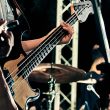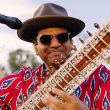A new Delhi-based clinical study has found that playing calming instrumental music during surgery can significantly reduce the amount of anaesthesia required, reinforcing the growing role of music as a supportive tool in medical care.
Conducted at Lok Nayak Hospital in collaboration with Maulana Azad Medical College, the peer-reviewed research focused on patients undergoing laparoscopic cholecystectomy, the standard minimally invasive procedure used for gallbladder removal. The study, published in international journal Music and Medicine, analysed outcomes from 56 patients aged 18 to 65 between March 2023 and January 2024.
Researchers aimed to evaluate whether exposure to music could influence intraoperative stress levels and anaesthetic consumption. All patients received an identical drug regimen comprising anti-nausea medication, sedatives, fentanyl, propofol and a muscle relaxant. While every participant wore noise-cancelling headphones, only one group was exposed to instrumental music throughout the procedure.
Participants were offered a choice between two Indian instrumental compositions, including soft flute and piano-based tracks. A majority selected a flute piece inspired by the Hindustani ragas Yaman and Kirwani, chosen for their calming and emotionally stabilising tonal structure.
The results demonstrated a clear difference in drug usage. Patients who listened to music required lower doses of propofol, averaging 6.7mg per kilogram per hour, compared to 7.86mg in the non-music group. They also required fewer top-up doses of fentanyl, which is typically administered to manage spikes in heart rate or blood pressure during surgery.
Researchers concluded that receptive music therapy functions as a safe, non-invasive and cost-effective adjunct to standard surgical practice, helping reduce reliance on anaesthetic drugs while improving overall patient stability, with no observed adverse effects.
While music therapy has long been integrated into areas such as oncology, mental health and post-operative recovery, the Delhi study adds fresh clinical weight to its use within operating theatres, positioning music not just as an artistic form but as a meaningful contributor to healthcare outcomes.








